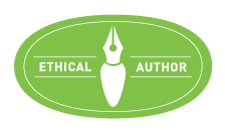For indie authors and artists, these are the best of times and the worst of times.
On one hand, technology has thrown the doors open to creation and authors no longer need to submit their literary offerings to the slush alters of publishing, praying for a meager blessing. Anyone can now publish anything from music, manuscripts and movies as often as they wish.
On the other hand, independent authors and artists are now responsible for every aspect of their creation from start to finish to include editing, nuts and bolts creation, graphic arts, layout, production and marketing.
Today’s creators must be multi-faceted beings with interesting, professional content, stage presence and staying power. They have to learn to do it all themselves or find professionals they can trust to do it for them. With half of all indie authors earning less than $500 a year, it’s best to DIY. This is not a get rich quick game, but when has being a creative soul ever been about earning the big bucks?
Regardless, it’s always nice to be a little less of a starving artist, and here are some facets of being an indie we should all keep polished so your creativity has a chance to shine.
Keep your product professional. Beg, borrow, barter, marry or kidnap people with a good eye that can catch your mistakes. It’s hard to see the flaws in our work because the vision in our head of what it’s supposed to be varnishes over what our creation really is.
It’s important to have thick skin as a creative soul. A critique isn’t an attack, it is wise advice we should heed to make our work better. You don’t have to listen, but it is wise to consider it. Kidnap an editor and treat all your friends to pizza if they can go over your work for you. Putting out substandard work pegs you as a noob, and that reputation may be hard to shake later.
“Overnight success” rarely happens overnight. When I held the first printed copy of End of Mae in my hands, it was as if I’d birthed another child. I couldn’t have been more proud. I took a walk afterwards, and in my mind I wondered if somehow I seemed different. I was a different creature now, after all. I was published. After a year, I realized no really cares, and there are a lot of us published authors out there.
Somewhere during that first year I had a realization that this was no quick game. I had been listening to a show about an author that was being billed as an overnight success, but when I looked up her book I was surprised to find it was three years old, and her fifth book total. She’s been grinding away for nearly ten years. That taught me that being an artist is a long-term investment. There will always be the one hit wonders, but if you are here to stay, arm yourself with patience.
Learn to be friendly or fade away. Very few, if any of us, can find success as a recluse. If you want to have your work reach more eyes than your immediate family, you must learn to connect with people. Cooperation is one of the best tools an indie creator has.
At our recent book signing, Robin Wiesneth and I cross shared our fan base, doubling it for both of us. We had two beautiful venues (Thank you Artful Things and Cafe Bienville!) that we brought new people into and we benefitted from being introduced to their regular patrons. It was win-win for us all.
Creative people should never be in competition with each other. We need to form beneficial symbiotic relationships to build each other up. By doing so, we can get a hand up ourselves. I’m lucky to have some fantastic people on my publishing team that includes Amy Eye for editing and formatting, Kyra Starr for cover design and graphic art and Mr. Smith who is my in-house beta listener. I value all their input.
Visual artists need words, artists of poetry and prose benefit from illustrations. Everyone needs music. Learn to get out and network and you will find that you have created a safety net to keep you from eating dirt when you fall. Sometimes that network can be a nice trampoline as well to give you a boost.
Learn to wear many, many hats. To make it today you have to be able to diversify. No one cares about your work more than you. You have to learn to be your own manager, promoter, assistant, graphic artist, formatter, publicist… or find people you trust who can do these things for you affordably. Flexibility is a key component of success and the more aspects of media you can master the better your chances.







